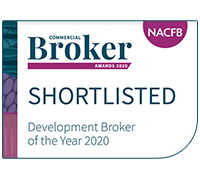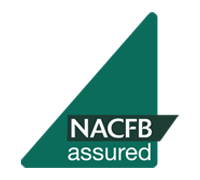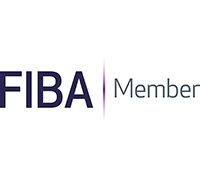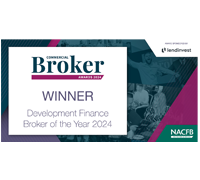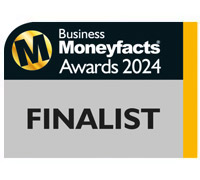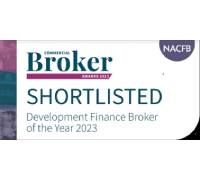Apply Online
Bridging Finance and Bridging Loans
Short-term funding which can be arranged very quickly, secured against any property type, and for any business purpose.
What is Bridging Finance?
Short-term finance secured against a property or “bridging” finance is widely used by property investors and developers as well as business owners for a variety of reasons. Bridging lenders will lend in situations where the more traditional lenders will not, and can provide loans in a much shorter timeframe if a quick completion is required. Acceptable security includes residential and commercial property of any type and in any condition, and land with or without planning consent.
A Bridging Loan is very different than a standard bank loan or mortgage – it is fast and very flexible form of short-term funding.
Short-term facilities can be used for as little as 1 day or up to 24 months, and in some cases longer. In most cases a provision for interest is deducted from the gross loan amount on completion of a bridging loan, but some lenders allow interest roll-up if interest cannot be paid monthly (“serviced”).
As the cost of a bridging loan is higher than a more traditional loan, an exit strategy is important. Exits are usually via refinance or a sale on the open market – a good strong exit will allow you to achieve the maximum LTV bridging loan.
There is a massive range of bridging lenders to choose from, so it is essential to have an understanding of the intricacies and mechanics of such facilities so the most appropriate and cost-effective option is utilised, from the right lender.
We can fast-track you through the process and identify the most suitable option swiftly.
What is Bridging Finance used for?
The uses of Bridging Finance are wide ranging. Some examples are:
Fast purchase of a property. This could be from an Auction, for example. When a sale is agreed at an auction the purchaser usually has 28 days or less to complete. Bridging Finance is perfect for this.
The purchase of an uninhabitable or “un-mortgageable” property. A property is not deemed to be mortgage-able if it is not habitable. Perhaps the property has suffered from fire or flood damage, or it has no working kitchen or bathroom.
Refurbishment, restoration or conversion or a property. A bridging loan is ideal for buying a property which needs works carrying out on it. Funds can often be provided to facilitate the works on the property, as well as the purchase.
Business Tax Payments. A bridging loan could be used to raise funds quickly against a property to pay a Tax bill, or any other urgent business-related bills.
Below Market Value purchases. Bridging Finance lenders will often advance a loan based on the value of the property, regardless of the purchase price. We have helped clients obtain 100% of the purchase price using a bridging loan.
Equity release. As long as the funds being released for business purposes, and not secured by a first charge on the borrowers’ main residence, equity can be released from properties owned quickly.
Lease Extensions.
Redeeming Development Finance facilities, to allow further time for sales.
Re-bridging, where a borrower needs another bridging loan, but the existing bridging lender will not extend the loan.
What are the Key Features of Bridging Finance?
Loan to Values (LTVs) of up to 80%, and up to 100% with additional security.
Interest rates from 0.4% per month, dependent on the LTV required.
Loans sizes from £25,000 upwards, with no maximum!
No redemption fees or exit fees in many cases
Available throughout the United Kingdom, and some European countries.
Bad or Adverse credit Bridging Loans available
Loans from 1 month to 3 years
No upper age limit for borrowers
What are the Bridging Finance Lending Criteria?
First, Second (and even Third!) charge loans available. Some lenders will lend relying on an Equitable Charge.
Property types include Residential investment property, Buy to Lets, Semi-Commercial/ Mixed-Use, Commercial Property, Land with planning, Property Portfolios, HMOs, Ex-Local Authority, Grade 2 Listed, and rural properties.
Bridging Loans can be arranged for UK citizens, expatriates, Foreign Nationals, UK companies and Trusts, Offshore Companies and Trusts, SPVs, Funds, Executors, LLPs, sole traders, partnerships etc.
The borrower will be responsible for legal fees and valuations where applicable.
What Information do you need to progress a Bridging Finance loan?
Who will be borrowing the money? A limited company, individual or other? We need the full name, last 3 years address history and Date of Birth for each borrower. If the applicant is a Company, we would need the company name and number along with all the Directors details, and the details of the significant shareholders (i.e. those owning more than 20% of the shares).
Full Address of the property to be purchased including postcode.
Sales Particulars or valuation if you have one (do not instruct your own valuation!)
Planning permission details, if applicable.
Explanation of your plans/ intentions for the property.
How will the Bridging Finance loan be repaid? (usually via a sale or refinance).
How long does it take to arrange?
A bridging loan can actually be completed in 48 hours. At Positive Commercial Finance, we can provide you with an offer in a matter of hours. Subject to all the professionals (valuers and solicitors) carrying out their roles in a timely manner, loans can be completed very quickly thereafter.
Who uses bridging loans?
Anyone can find themselves in need of a bridging loan. Applicants can be Companies and Individuals, including property developers, landlords, property investors and entrepreneurs.
Why use Bridging Finance?
The main uses for bridging include:
To raise monies quickly, perhaps for a corporate tax bill
To complete on a purchase quickly
To renovate or refurbish a property
Auction purchases
Purchasing a property which is un-mortgageable (no working kitchen or bathroom, or roof!)
How much does Bridging cost?
Bridging Finance has got cheaper recently with rates from around 0.49% per month.
Interest rates can be determined by Loan to Value, the property type, and the borrowers credit history and profile or level of experience.
What Fees are involved?
Arrangement Fees – A fee charged by the lender for providing the loan
Exit Fee – this may be charged when the loan is repaid
Surveyors or Valuer Fees – a RICs valuation is usually required
Legal Fees – Solicitors fees for dealing with the loan
Interest – usually calculated on a monthly basis.
How do I choose a lender?
This is where Positive Commercial Finance come in. We will save you time and money by using our experience to get the best fit for your proposal and get you the maximum LTV Bridging Finance.
What information will I need to obtain a loan?
We will need the borrowers name (or company name and number) and address, security property address, source of deposit, length of term required and the “exit strategy” or the method of repaying the loan. We will also need to know if the borrower(s) have any experience of doing what they are proposing to do, and if there is any adverse credit history.
Criteria overview
- Cheapest rates guaranteed
- Up to 80% LTV
- Terms from 1 month to 2 years
- Adverse credit considered
- Loans from £30K to £100M
- 1ST 2ND & 3RD CHARGES

Bridging calculator
Bridging Product Types
Frequently Asked Questions
- What is Bridging Finance?
- Why is it called Bridging Finance?
- How does Bridging Finance work?
- Are Bridging Loans very expensive?
- How long can I have a bridging loan for?
- How is a bridging loan calculated?
- What type of property can I buy with a Bridging Loan?
- Do I have to pay interest monthly?
- Will I qualify for a Bridging loan?
- How do I repay a Bridging Loan?
- Are Bridging Loans regulated?
- Do you have to put down a deposit with a bridging loan?
- What is 100% bridging finance?
- What is Loan To Value?
- How does a Bridging lender value a property?
- Can I use a Bridging to renovate a property?
- What fees will I have to pay?
- Are there many bridging loan lenders?
- How do I choose a Bridging lender?
- Are there valuation fees and legal fees?
- What happens if I can’t repay in time?
- Will the property be repossessed?
- Do you have to put down a deposit with a bridging loan?
- Can I use a bridging loan to get planning permission?
- What type of people use bridging loans?
- Can I get a bridging loan if I already have a mortgage?
- Does the property have to be in the UK?
- Are all bridging loans secured against property?
- Is there a maximum age for a bridging loan?
- Can I get a bridging loan quickly?








